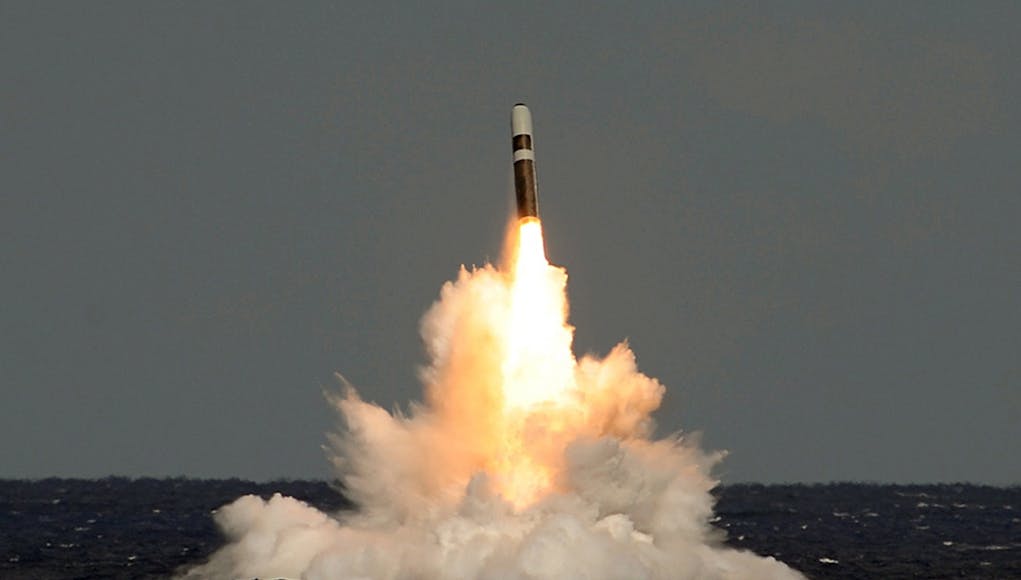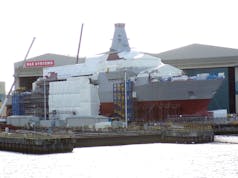It is understood that the Trident missile system will be given increased protection from cyber-security threats.
The Ministry of Defence is planning to spend nearly £2 billion on cyber security over the coming five years, including a scheme to improve the safety of Britain’s nuclear deterrent in partnership with the US Navy. The US military is reported to be poised to award a contract to British defence contractor BAE Systems to develop Trident’s cyber-security protection.
In statements made by Ministry of Defence officials to The Telegraph, both countries have scheduled upgrades to Trident missile software in order to fend off the threat of cyber-attacks. Since Trident missiles aren’t connected to the Internet, the security features planned are likely aimed at making it harder for attackers to leverage techniques used in targeting air-gapped systems.
John Daniels, a spokesman for the US Navy’s Strategic Systems Programme, told the media:
“Now that cyber has become even more important in our national security, there will be even more requirements. In our modern era, cyber-security threats are a legitimate concern.”
Adrian Crawley, regional director for northern Europe at cyber security providers Radware, told Computing here:
“I’m afraid the reality is that any defence facility, or national public or private infrastructure service, could be hacked.”

US and UK officials have announced future upgrades to their Trident missiles program, and more specifically, to the missile’s software, in order to prevent cyber-attacks.
A Ministry of Defence spokesman said:
“The deterrent remains safe and secure.We take our responsibility to maintain a credible nuclear deterrent extremely seriously and continually assess the security of the whole deterrent programme and its operational effectiveness, including against threats from cyber.”
Currently, the US and UK are using the same type of submarine-launched missiles with their fleets, which is the Trident Class II D5 model. Britain has 58 of these missiles, deployable on four submarines.
All of the UK’s missiles regularly undergo scheduled maintenance work, during which they also receive upgrades. This work is done by BAE Systems, the company contracted by both the US and the UK for this job. BAE company declined to comment on the work.
the UK deterrent is completely operationally independent and UK does not need permission of the US (or anyone else) to launch its Trident missiles.
An MOD spokesperson said:
“The command and control system of the nuclear deterrent is fully independent and decision-making and use of the system remains entirely sovereign to the UK.”
It’s a common myth that the United States has control over the UK’s Trident missile system, that is not the case and it’s often said that the UK’s Trident nuclear weapons system is not ‘independent’ or that the UK doesn’t have the ability to use the system without the US agreeing to it, in reality however that is simply not the case.
The argument is often that the US can simply turn off the GPS system and therefore can stop the UK using Trident, this is also a myth, Trident isn’t guided by satellite.
The missile uses a kind of stellar sighting guidance system and inertial navigation to take a reading from the stars to work out the missile’s position and make any adjustments necessary. They do not require GPS.
One source for the confusion could be the fact that, aside from those currently deployed, the missiles are held in a communal pool at the US Strategic Weapons facility at King’s Bay, Georgia, USA where maintenance and in-service support of the missiles is undertaken at periodic intervals. The missiles are jointly maintained, this is much cheaper than the UK doing it on its own and does not give the United States control over any of the weapons deployed on the submarines.
In summary, the UK retains full operational control, to the extent that the US could not stop a launch. A Freedom of Information request proving that the United Kingdom has full operational control over its Trident missile system is displayed below. It can be downloaded here.













